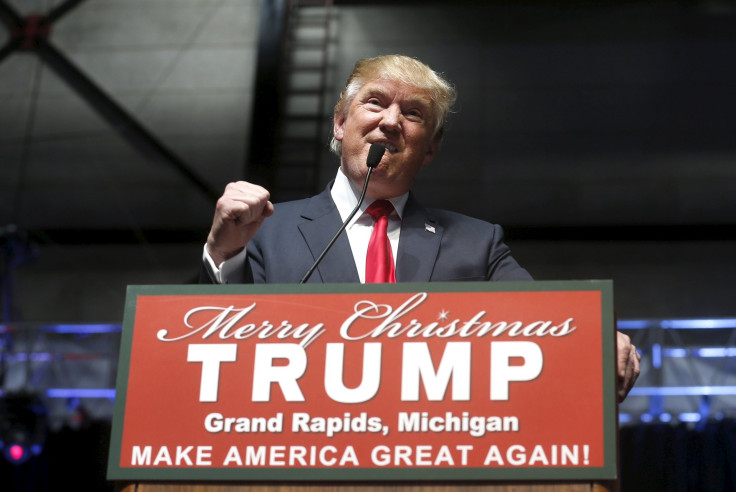Are Muslim-Americans More Afraid Of The US Than ISIS? Panel Reaction To Donald Trump Shows Less Concern For Islamic State Group Stateside

Muslims in America may well be more afraid of the U.S. government than they are of the Islamic State group, and Republican front-runner Donald Trump has been drumming up that anxiety. During a panel of Muslim-Americans last week, Republican strategist and CBS News contributor Frank Luntz heard from individuals who felt more threatened by the American government than the relatively weak military power of the terrorist organization, aka ISIS.
“It's not going to solve anything," one woman said when asked if she thought bombing ISIS would quell the group's attacks. "I was born in '93. My whole entire life we have been in a time of war ... ISIS does not have the capabilities to destroy America. Our military spending is better than the next 7 or 10 countries combined. I am not scared of ISIS — I'm not. I am scared of my government, actually. I am more scared of my government than I am of ISIS.”
Donald Trump has taken a hard stance toward Muslims in the aftermath of the terrorist attacks in Paris and San Bernardino, California. He has indicated that the U.S. should monitor mosques and that Muslims should be banned from entering the country until American lawmakers can completely understand the threat of ISIS.
Muslims in Luntz’s panel described a fearful situation for Muslims in the U.S.
"I feel like every morning when I wake up, am I going to be mad because I am black in America? Or am I going to be mad because I am Muslim in America?” one man, who is a seventh-grade science teacher, answered when asked if he was more scared of the government than terrorists.
Trump, no stranger to controversy, has proved to be immune to criticism over comments like those he has made about Muslims or other ethnic groups in the United States. He has enjoyed a nearly uncontested past five months at the top of national polls among Republican presidential candidates, according to averages put together by RealClearPolitics.
© Copyright IBTimes 2024. All rights reserved.












